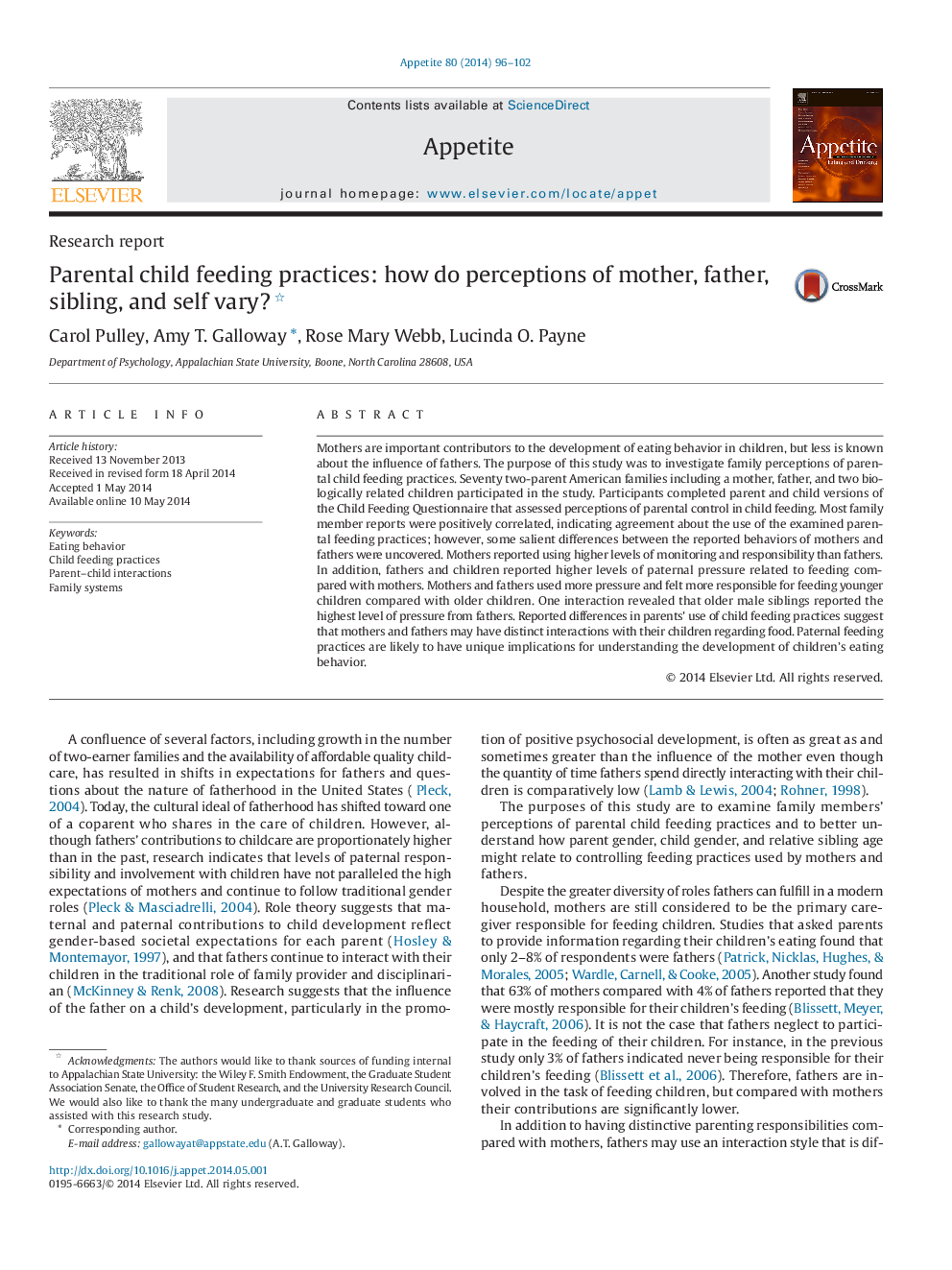| Article ID | Journal | Published Year | Pages | File Type |
|---|---|---|---|---|
| 939417 | Appetite | 2014 | 7 Pages |
•Most parent and child reports of parental child feeding practices were correlated.•Mothers reported more monitoring and responsibility for feeding than fathers.•Fathers and children reported that fathers use more pressure to eat than mothers.•Younger children experienced more controlled feeding practices than older children.
Mothers are important contributors to the development of eating behavior in children, but less is known about the influence of fathers. The purpose of this study was to investigate family perceptions of parental child feeding practices. Seventy two-parent American families including a mother, father, and two biologically related children participated in the study. Participants completed parent and child versions of the Child Feeding Questionnaire that assessed perceptions of parental control in child feeding. Most family member reports were positively correlated, indicating agreement about the use of the examined parental feeding practices; however, some salient differences between the reported behaviors of mothers and fathers were uncovered. Mothers reported using higher levels of monitoring and responsibility than fathers. In addition, fathers and children reported higher levels of paternal pressure related to feeding compared with mothers. Mothers and fathers used more pressure and felt more responsible for feeding younger children compared with older children. One interaction revealed that older male siblings reported the highest level of pressure from fathers. Reported differences in parents’ use of child feeding practices suggest that mothers and fathers may have distinct interactions with their children regarding food. Paternal feeding practices are likely to have unique implications for understanding the development of children's eating behavior.
